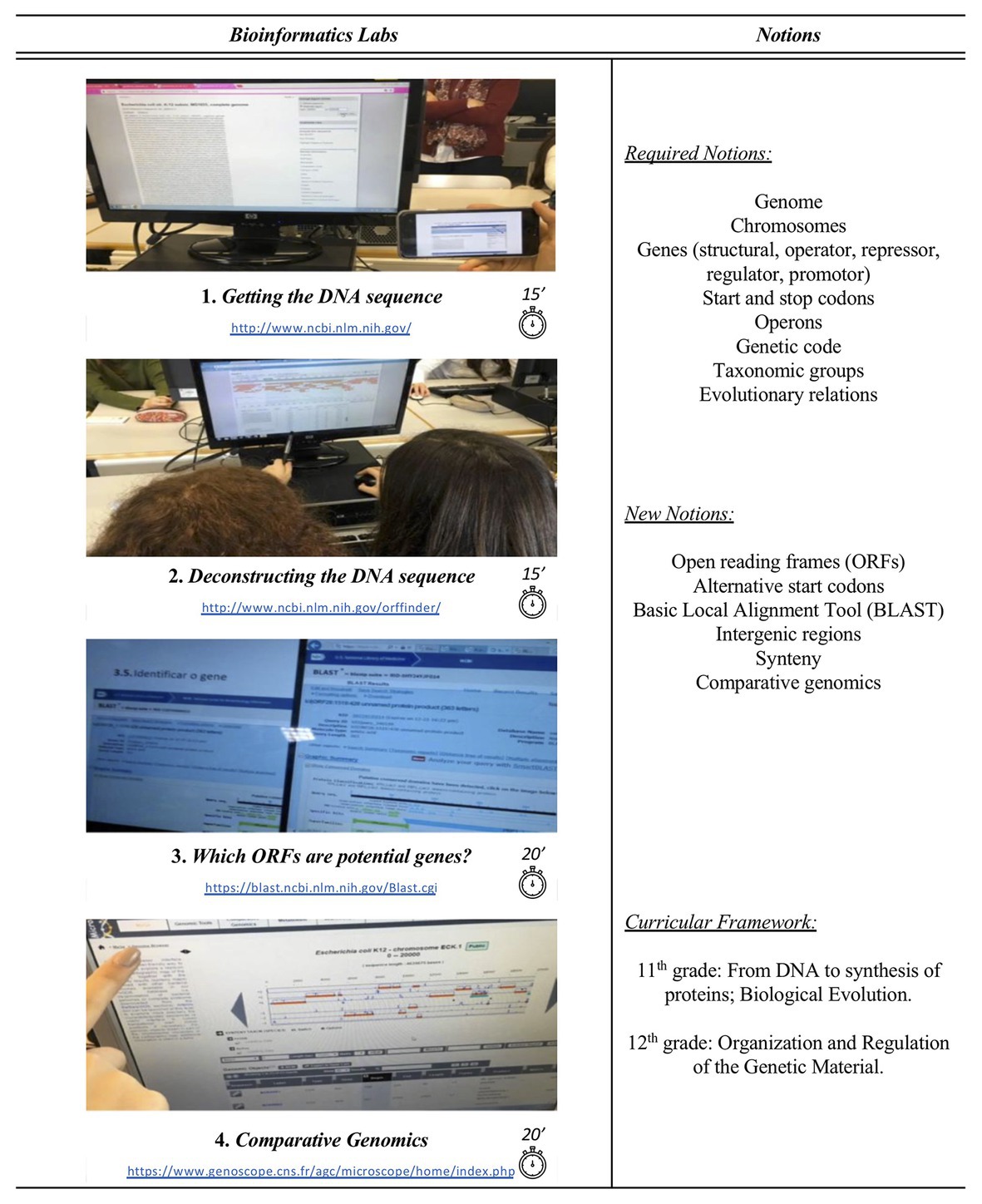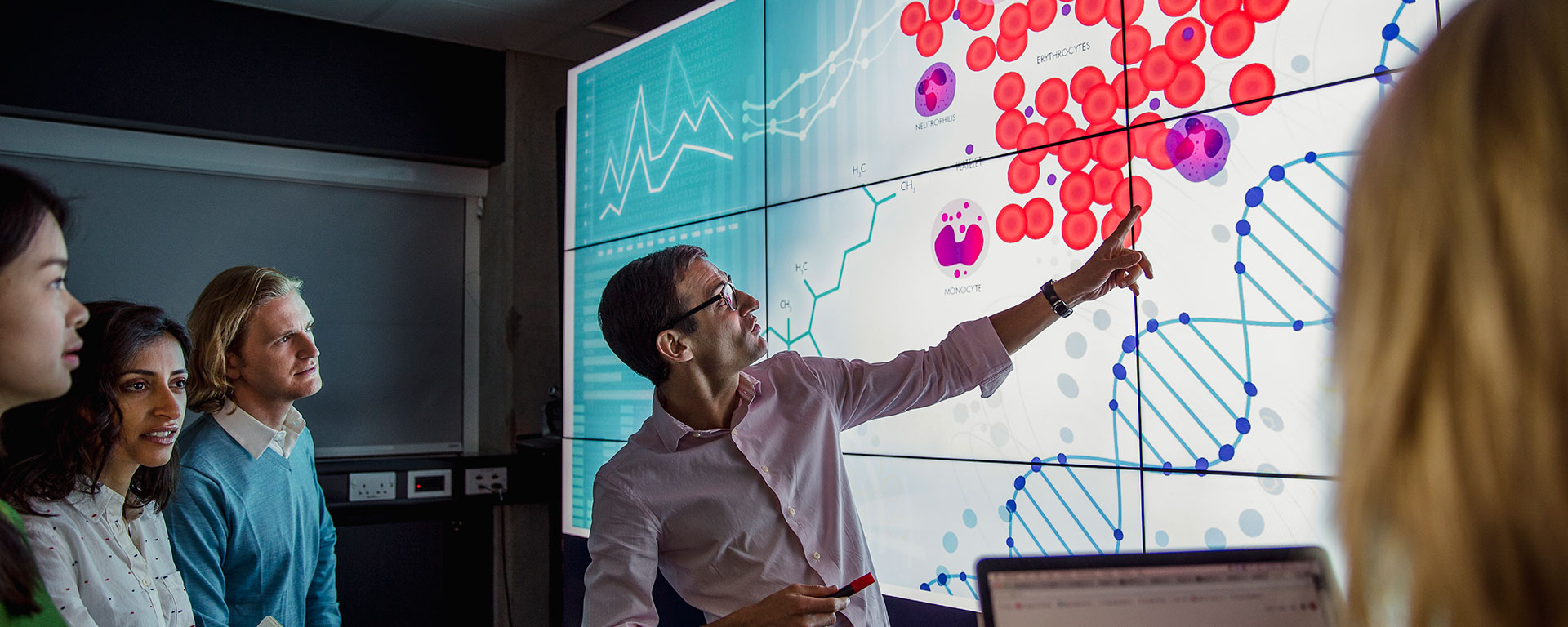Unknown Facts About Bioinformatics Tutor
Unknown Facts About Bioinformatics Tutor
Blog Article
The Best Guide To Bioinformatics Tutor
Table of ContentsThe Definitive Guide to Bioinformatics TutorHow Bioinformatics Tutor can Save You Time, Stress, and Money.Getting My Bioinformatics Tutor To WorkThe Of Bioinformatics TutorNot known Facts About Bioinformatics Tutor
Of the total individuals involved in the training, 80% were students from public college organizations, while the continuing to be 20% originated from private establishments. To receive a certification of engagement, students were needed to go to at least 90% of the overall training hours. As an outcome of this requirement, an impressive 95% of the participants effectively acquired their certifications, having not just met the minimum attendance standards yet likewise finished all assigned tasks throughout the training.
Throughout the elevation of the COVID-19 pandemic, particularly in between June and August 2020, the task team was tasked with organizing specialized training in bioinformatics. This training was particularly focused on pupils from the research study team Nucleus for Study in Applied Computer at the Federal College of Pará (UFRA) The adjustment to remote discovering platforms due to the pandemic developed a possibility to check out new teaching approaches and electronic devices that boosted both reach and performance.
To react to the growing need in the computer and life sciences fields, an advanced program was introduced in 2020 labelled Introduction to Artificial intelligence. This course was made to supply an easily accessible yet thorough overview of Artificial Knowledge strategies, specifically as applied in bioinformatics. The program was accomplished over 3 months, from October to December 2020, and was delivered totally online via the Google Meet system. This digital layout allowed engagement from pupils throughout Brazil, numerous of whom might not have had the possibility to attend in-person sessions.
Unknown Facts About Bioinformatics Tutor
Around 50% of the total training hours were devoted to sensible tasks where students built smart models and applications in a range of scientific domain names, including genetics, molecular biology, and environmental information evaluation. These platforms enabled trainees to involve in real-time information control, model training, and algorithm experimentation.
The training course attracted 80 individuals in total. Sixty of them were connected with different greater education and learning establishments in the state of Pará, while the remaining twenty originated from institutions situated in 5 various other Brazilian states. This wide geographical depiction highlighted the nationwide rate of interest in bioinformatics and the growing need for specialized abilities in this field. By presenting Expert system in a useful and relevant context, the effort offered to link the gap between concept and real-world application, providing trainees with a strong structure for future research or work in the area.
The training campaign created component of a broader academic outreach initiative called the Bioinformatics when driving job. This job has, throughout the years, introduced dozens of students to the world of bioinformatics and computational biology. The events held under this umbrella initiative have actually occurred across multiple areas and years, as summarized in Table 1 (Checklist of occasions, places, years, and overall numbers of trainees and trainers)
Several of these teams, originally brought together by their participation in training occasions, have actually considering that gone on to generate independent scientific research study in collaboration with local scholastic institutions. The training not just fostered scientific thinking within the context of bioinformatics but additionally triggered joint partnerships that prolonged beyond the training setting.
What Does Bioinformatics Tutor Do?
The job itself was conceptualized and arranged by megabytes and navigate to these guys RR, who oversaw the planning and implementation of each step. Lectures were provided by a multidisciplinary team consisting of MB, FA, EF, KP, JS, DM, SN, LP, LG, AIR CONDITIONER, IH, and RR. The exact same group, excluding IH and RR, additionally worked as tutors for the useful training components. Financing for the job was offered through the grant 88887.200562/ 2018-00 from CAPES. The authors expand have a peek at this site their appreciation to everyone that added to the understanding of this project, whether straight or indirectly, because its beginning.
The Federal College of Pará's Workplace of Research (PROPESP/UFPA) additionally gave financial backing, specifically for the manufacturing of the final manuscript. The writers proclaim no economic or commercial conflicts of interest that could have influenced the research study. Furthermore, all point of views and analyses revealed in this short article are exclusively those of the authors and do not necessarily reflect those of their respective institutions, the publisher, editors, or customers associated with the magazine process.

Facts About Bioinformatics Tutor Uncovered
From an instructional viewpoint, the teaching method used in the training was purposefully interactive. Courses were carried out in a way that encouraged student involvement and discussion, going past rote memorization to check out how concepts are developed, used in day-to-day life, and checked in academic setups. The educational ideology concentrated on nurturing both solid and battling pupils, giving customized support, and structure confidence through continual mentorship and persistence.

Each group, containing about 36 participants, was supported by 3 coaches-- the majority of whom were postdoctoral researchers with specialized expertise. These mentors not just helped make the team projects yet also promoted their implementation, making certain that each research inquiry was both suitably difficult and pertinent. The goal was to provide a biologically practical context that individuals could check out with flexible purposes and access to curated datasets.
For additional understandings into the method and outcomes of this project-based discovering method, viewers are routed to S1 Text, which includes thorough summaries of the instructional structure, analysis strategies, and job site web motifs made use of in the training sessions.
How Bioinformatics Tutor can Save You Time, Stress, and Money.
Of the overall individuals included in the training, 80% were pupils from public greater education institutions, while the remaining 20% came from exclusive organizations. To certify for a certificate of engagement, trainees were called for to go to at least 90% of the total training hours. Notably, beyond the trainees who enrolled in the training sessions, seven knowledgeable teachers participated in supplying the courses, while three committed research study teachers worked with the overall training process. About 50% of the overall training hours were committed to functional tasks where trainees built smart designs and applications in an array of clinical domain names, consisting of genetics, molecular biology, and environmental information analysis. The training not only promoted scientific reasoning within the context of bioinformatics yet also triggered collective partnerships that expanded beyond the training setting.
Report this page